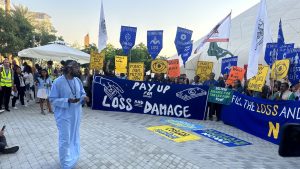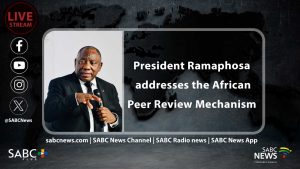UN Mission Chief warns of ongoing insecurity ahead of DRC elections
SHARE THIS PAGE!
As the Democratic Republic of Congo (DRC) prepares for key elections later this month, the head of the United Nations mission is warning that volatile insecurity in the country’s east continues to pose a major challenge.
Briefing the Security Council, the Head of MONUSCO and the Secretary General’s Special Representative to the DRC, Bintou Keita warns that the rebel M23 crisis continued to fuel frustration and anger.
This also exacerbates tensions between the DRC and Rwanda, with warnings that the risks of a military escalation remain high.
Other militia groups, the ADF and CODECO are also active, fueling a dramatic humanitarian situation in the eastern provinces of Ituri, North and South Kivu.
Keita has raised key concerns with the country’s Independent National Electoral Commission (CENI).
Democratic Republic of Congo prepares for elections: Ditaba Tsotetsi
Peaceful transition
As millions prepare to vote in the presidential and parliamentary election on December 20, it is worth noting that the country has only enjoyed one peaceful transition of power after Felix Tshisekedi succeeded Joseph Kabila in 2019.
Special Representative, Bintou Keita says, “We are today at an important crossroads in the relationship between the United Nations and the DRC, but also an important moment for the country itself. The DRC is in the midst of an electoral period, nine days from a presidential election, as well as national, provincial and also local elections. The country is also calling for an accelerated, orderly and responsible withdrawal of MINUSCA, for which a special report of the Secretary-General and a joint disengagement plan have been transmitted to you with the recommendations.”
She encourages all political parties to uncompromisingly fight against hate speech and discrimination in the build-up to the polls, while she condemns various attacks and intimidation which harm the participation of women in the elections – that now represent a paltry 17% of candidates.
Keita adds, “The validation of 26 presidential candidates by the CENI (Independent National Electoral Commission) and the Constitutional Court, including two female candidates, was a tangible sign of inclusivity, which needs to be appreciated and commended. Nevertheless, the opposition and civil society continue to have more serious concerns about the publication of the voters, all of which was not done at all polling stations by 5 December as required by law. The quality of voter cards, the difficulty in obtaining duplicates throughout the country, and insufficient communication on voting procedures for those whose cards are defective or do not find themselves on the voter list, fuels mistrust among electoral stakeholders. National electoral observation missions have also raised concerns about their accreditation, without which they will be unable to ensure proper coverage of the polls. I call on the CENI to do everything in its power to urgently address these issues.”
With security challenges in the east, there are more than 6 million people who remain displaced in Ituri and the Kivu provinces – with sexual violence rampant, as Keita explains.
“According to preliminary figures, over 500 000 people have fled their homes following renewed hostilities between the M23 and the Congolese armed force forces since early October. In parallel, outbreaks of cholera and measles have continued to exacerbate the precarious humanitarian situation, with cholera transmission rates being four times higher than the previous year. The incidences of gender-based violence and sexual exploitation have reached alarming levels, with more than 90 000 cases documented since the beginning of the year. 39 000 of these cases were recorded in North Kivu alone. This is totally unacceptable.”
She informs the Council that SADC had confirmed its intent to deploy a force in the eastern DRC in the coming weeks with an offensive mandate.
And after President Tshisekedi in September called for the withdrawal of MONUSCO from the country, the UN and the government have since signed a comprehensive disengagement plan that would see the tasks of MONUSCO transferred to the country’s military – in line with four benchmarks: reducing the threat of armed groups, the protection of civilians, disarmament and demobilisation and the holding of elections.
In that context, the Council is expected to renew MONUSCO’s mandate by December 20th – just as some 40 million Congolese go to the polls.
Mining production up 3.9% in October: Stats SA
3 hours ago
